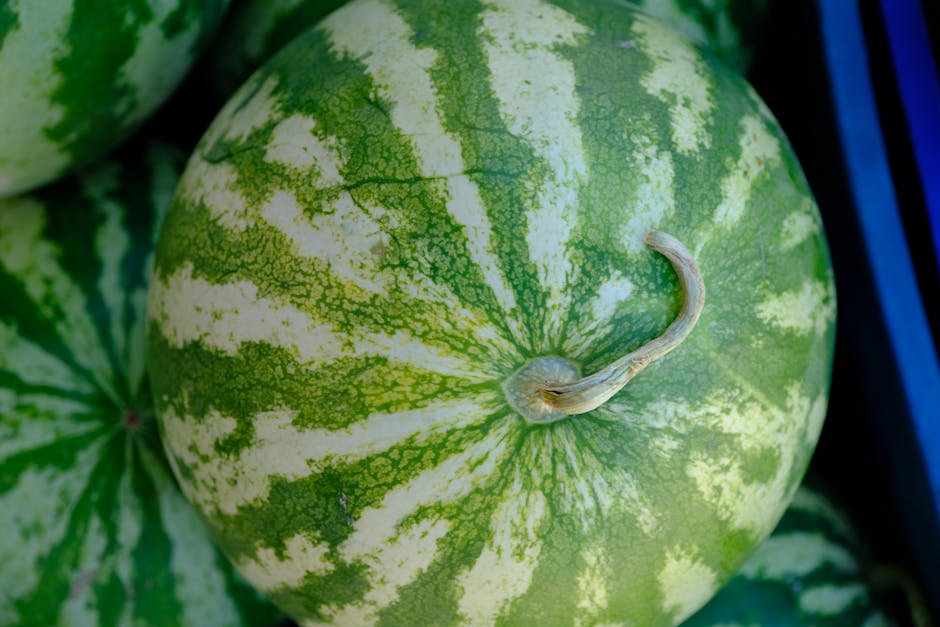
Image Source: pexels.com
Every year, as temperatures rise, shoppers notice certain staples missing from store shelves. It’s not your imagination—summer truly does make some grocery items harder to find. Grocers often point to the heat as the main culprit. High temperatures speed up spoilage, disrupt supply chains, and send demand soaring for seasonal favorites. For savvy shoppers, knowing which items tend to vanish can help you plan ahead and avoid disappointment. Let’s look at 11 items that disappear every summer and why grocers blame the heat for these shortages. If you want to keep your pantry stocked, it pays to understand these trends.
1. Fresh Berries
Fresh berries—especially strawberries, raspberries, and blueberries—are summer favorites. But their popularity isn’t the only reason they vanish. These delicate fruits have a short shelf life and are sensitive to heat. Warm weather accelerates spoilage, making it tough for grocers to keep them fresh for long. The result? Empty berry shelves or higher prices mid-season. If you’re a berry lover, you might want to shop early in the day or freeze extras when you find them.
2. Ice Cream
Ice cream is synonymous with summer, but the heat is a double-edged sword. Not only does demand spike as everyone craves a cold treat, but the risk of melting during transport and stocking increases. Grocers often struggle to keep up with both the rush and the logistics. Freezer space is at a premium, and any delays in delivery can mean melted or misshapen cartons. If you see your favorite flavor, grab it—ice cream is one of those grocery items that disappear every summer.
3. Bottled Water
Bottled water sales soar during heat waves, leading to frequent shortages. People stock up for outdoor activities, travel, and to stay hydrated. Distribution centers can have trouble keeping up, especially when heat impacts transportation. Grocers often see shelves cleared out within hours, particularly in areas experiencing drought or high temperatures. Planning ahead and considering reusable water bottles can help you avoid the rush.
4. Leafy Greens
Leafy greens like lettuce, spinach, and arugula are especially vulnerable to summer heat. High temperatures in growing regions can cause crops to wilt or bolt, reducing yields. Transportation in hot weather also shortens shelf life, so grocers may order less to avoid waste. This means your favorite salad ingredients could be in short supply, especially during heat waves. Wash and store greens properly to make them last longer at home.
5. Eggs
Eggs might seem like a year-round staple, but they’re one of the grocery items that disappear every summer in some places. Heat affects hens’ laying cycles, reducing egg production during peak summer months. On top of that, eggs are sensitive to temperature changes during storage and transportation. This can lead to spoilage and loss, so grocers might limit inventory to avoid waste. If eggs are a must-have, consider buying a bit extra when you spot a full shelf.
6. Butter
Butter faces unique challenges in the summer. Dairy cows produce less milk in extreme heat, reducing the supply of cream needed for butter. At the same time, butter is sensitive to melting, making storage and shipping more complicated. Grocers sometimes stock less to minimize risk, which means you might see empty spots in the dairy aisle. Planning ahead or choosing shelf-stable alternatives can help you weather the shortage.
7. Bagged Ice
Nothing says summer like cold drinks, and bagged ice is in high demand. Whether for picnics, parties, or camping trips, people buy more ice in hot weather. However, ice production can’t always keep up. Freezer breakdowns, delivery delays, and sheer volume mean bags disappear quickly. Some stores even limit purchases during heat waves. If you rely on bagged ice, consider making your own at home to avoid the rush.
8. Fresh Herbs
Fresh herbs like basil, cilantro, and parsley are popular in summer recipes. But these tender greens wilt quickly in hot, humid conditions. Heat shortens their shelf life both in the field and in the store. Grocers may scale back orders to avoid waste, leading to bare spots in the produce section. Growing your own herbs at home can be a smart way to ensure a steady supply all season.
9. Yogurt
Yogurt consumption often rises in summer thanks to its cool, refreshing taste. However, heat challenges the dairy supply chain. Yogurt is sensitive to temperature fluctuations, and even short delays in refrigeration can ruin shipments. Grocers sometimes struggle to keep enough in stock, particularly during extended heat waves. Consider buying in bulk when you spot your favorite flavors, or try making your own at home.
10. Pre-Packaged Salads
Convenient, healthy, and perfect for warm-weather meals, pre-packaged salads are a summer staple. But like other leafy greens, they don’t fare well in the heat. Packaging can trap moisture, speeding up spoilage if not kept cold. Grocers may find it hard to keep these items fresh, leading to frequent stockouts. If you love salads, you might want to assemble your own from whole produce during the hottest months.
11. Popsicles and Frozen Treats
Popsicles and other frozen treats are classic summer snacks, but they’re also among the first grocery items that disappear every summer. Demand skyrockets, and the risk of melting during transport means fewer make it to the shelf in perfect condition. Freezer space is limited, and grocers often prioritize top sellers. If you’re craving a specific brand or flavor, check early or consider making your own at home.
Beat the Summer Shortages
Grocery items that disappear every summer can make shopping a challenge, especially during heat waves. Understanding why these shortages happen helps you plan and avoid frustration. The heat speeds up spoilage, disrupts production, and increases demand for certain foods. Grocers do their best, but sometimes empty shelves are unavoidable.
Want more tips on navigating seasonal grocery trends? Have you noticed any items missing from your store this summer? Share your experiences and tips in the comments below!
Read More
